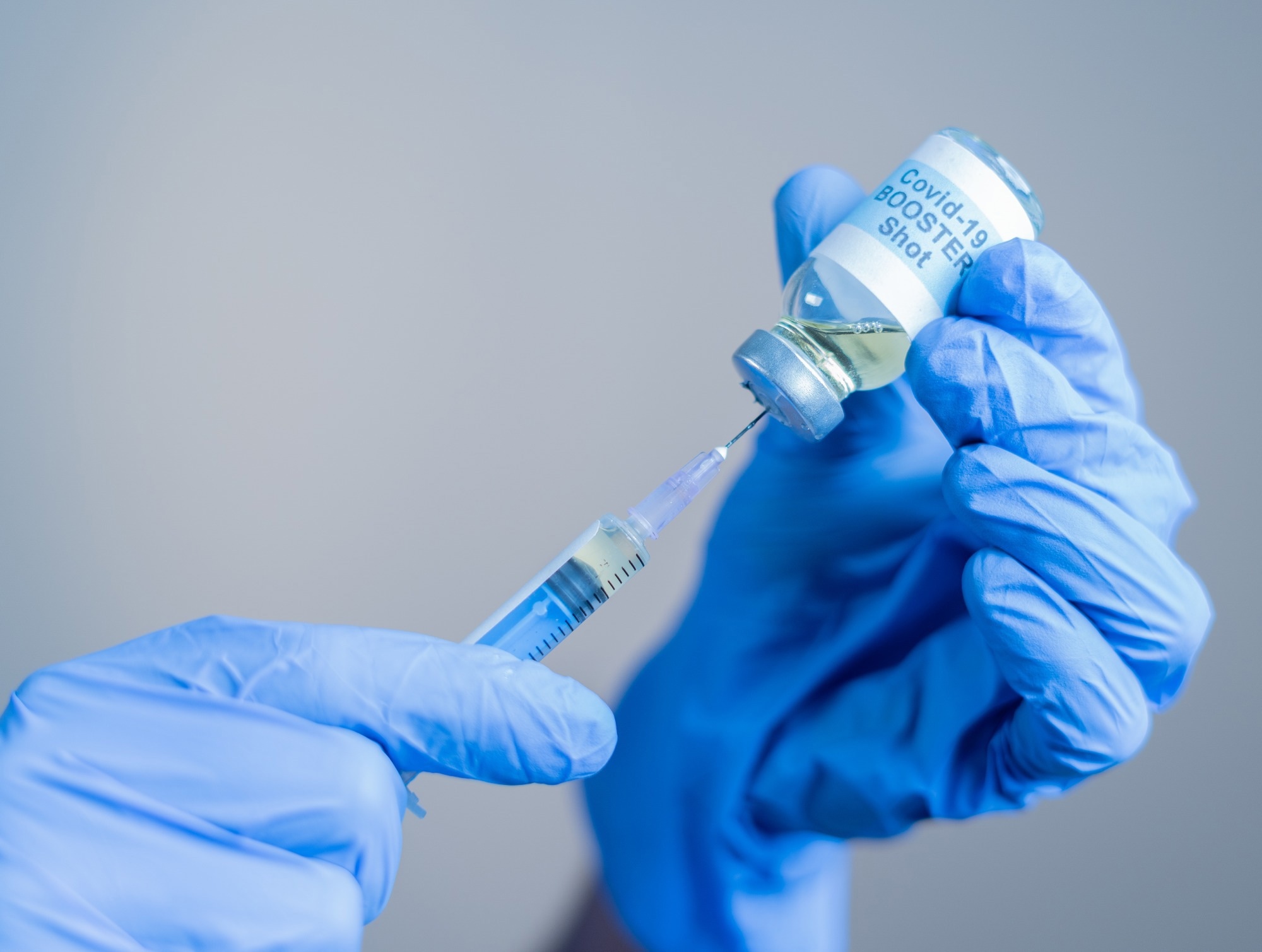They evaluated whether bivalent messenger ribonucleic acid (mRNA) vaccine booster reduced coronavirus disease 2019 (COVID-19)-related hospitalizations and mortality.
 Study: Effectiveness of a bivalent mRNA vaccine booster dose to prevent severe COVID-19 outcomes: a retrospective cohort study. Image Credit: WESTOCKPRODUCTIONS/Shutterstock.com
Study: Effectiveness of a bivalent mRNA vaccine booster dose to prevent severe COVID-19 outcomes: a retrospective cohort study. Image Credit: WESTOCKPRODUCTIONS/Shutterstock.com
Background
Earlier studies showed that booster shots of monovalent mRNA vaccines were highly effective against all severe acute respiratory syndrome coronavirus 2 (SARS-CoV-2) variants. Its second dose also markedly reduced hospitalizations and deaths during the Omicron era.
However, against the Omicron variant, the efficacy of monovalent mRNA vaccines was relatively less compared to earlier SARS-CoV-2 variants, e.g., Delta. Also, it waned rapidly between three to four months after vaccination.
The bivalent vaccine system comprises a component of the ancestral SARS-CoV-2 strain and an updated Omicron BA.4 and BA.5 subvariants-derived component.
In the United States of America (USA), these vaccines received emergency use authorization (EUA) in September 2022. Then, countries substituted monovalent mRNA-based booster vaccines in many countries, including Israel.
Since then, Israel has prioritized the bivalent mRNA booster vaccines for people at a higher risk of progression to severe COVID-19, mainly those aged ≥ 65 years.
However, there is a shortage of randomized controlled trials (RCTs) clinically evaluating bivalent mRNA booster vaccines, which are urgently needed to establish they prevent severe COVID-19 outcomes.
About the study
In the present study, researchers included all CHS members aged ≥65 years who were eligible to receive a bivalent mRNA COVID-19 booster shot to evaluate its efficacy in preventing severe illness and mortality, calculated as 100 × [1–hazard ratio (HR)].
To this end, they extensively searched all language publications on databases, such as PubMed, that discussed the real-world effectiveness of COVID-19 bivalent vaccines using the keywords 'mRNA bivalent booster', 'bivalent vaccine', 'bivalent booster vaccine', etc.
The team restricted this search to peer-reviewed research articles published between September 1, 2022, and January 31, 2023. Likewise, the study analysis only included the Pfizer-BioNTech bivalent mRNA vaccine, as it was the primary vaccine supplier in Israel.
The primary study outcome was COVID-19-related hospitalization, which the team compared among participants who received a bivalent mRNA booster vaccination vis-à-vis those who did not receive it.
Finally, the researchers used a Cox proportional hazards regression model to evaluate the relationship between the receipt of a bivalent vaccine and COVID-19-related hospitalization. The model adjusted for sociodemographic factors and other illnesses.
Results
In all eligible adults aged ≥65-year-olds, the vaccine effectiveness of a bivalent Omicron BA.4/BA.5 mRNA vaccine booster shot was 72% and 68% for COVID-19-related hospitalization and mortality, respectively.
Unfortunately, though their supply was ample, uptake of bivalent booster shots remained low in the targeted high-risk population.
According to the authors, many factors drove its low uptake, including a shortage of data on their efficacy against severe COVID-19, reports of adverse side effects, or the notion that the vaccine was unnecessary and infection helped elicit adequate immunity.
In such a state of affairs, the current study results could encourage more people in the high-risk category to get booster shots, especially that of a bivalent mRNA vaccine.
However, public health officials should make concerted efforts to cease the spread of misinformation regarding its effectiveness and safety. Additionally, clinicians and healthcare professionals should endorse COVID-19 vaccination to bolster trust in the system.
It is justified because study results suggested that as more people received bivalent vaccines, it prevented more COVID-19-related deaths. Compared to the monovalent booster vaccine, vaccinating three times more people (3,722 vs. 1,166) prevented one COVID-19-related death in this study.
Currently, the vaccine effectiveness of the bivalent vaccines is lower; thus, higher HRs could reduce more deaths than the monovalent booster (0·32 vs. 0·10).
Strikingly, the authors also noted that time since receipt of a recent monovalent vaccine affected the benefits of bivalent mRNA booster shots. It conferred more protection against symptomatic COVID-19 as this time reduced.
The vaccine effectiveness of one bivalent booster dose against severe illness was substantially higher than one monovalent booster dose (58.5% vs. 21%) in all the study participants. It was also much higher against severe illness resulting in hospitalization or death, 61.5% and 20.3% for the bivalent vs. monovalent booster dose.
Conclusion
To summarize, the study findings highlighted the significance of boosting eligible members of the high-risk population (≥65 year-olds) with bivalent vaccine as it considerably reduced the risk of severe COVID-19 outcomes.